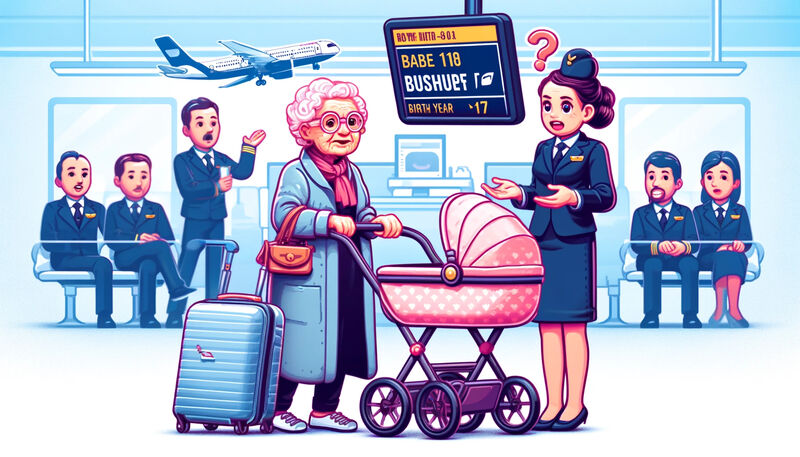Airline keeps mistaking 101-year-old woman for baby

In an amusing yet troubling mix-up by American Airlines' booking system, 101-year-old Patricia (who prefers to keep her surname private) frequently encounters an age-related error that has her labeled as an infant born in 2022 rather than a centenarian born in 1922. This peculiar glitch has caused more than just confusion; it has impacted Patricia's travel experience significantly.
The latest incident was witnessed by a BBC reporter during Patricia’s flight from Chicago to Marquette, Michigan. The error led to amusing yet inconvenient situations where airport staff were unprepared to assist a senior citizen, expecting a baby instead. Patricia humorously remarked on the situation, appreciating the light-hearted moment with the cabin crew but expressed a genuine desire for a resolution.
Due to the recurring error, airport preparations such as wheelchair arrangements have been inadequate or absent, expecting an infant that could easily be carried instead of an elderly woman who needs assistance navigating the airport. This oversight once led to Patricia and her daughter Kris, having to manage extensive walks through the airport terminal without the aid of a wheelchair.
The root of the problem lies in the airline’s computer systems which fail to recognize a birth year as far back as 1922. Consequently, the system defaults to a more recent year like 2022. Despite multiple occurrences, the issue persists, indicating a gap in updating or adjusting the software to accommodate centenarians.
As of now, American Airlines has not formally responded to inquiries regarding this specific glitch. The lack of official communication suggests a broader issue in customer service responsiveness, particularly for unique cases that fall outside typical scenarios.
Patricia, a former nurse who has flown annually to visit family and escape the harsh winters, relies on her daughter for assistance during travels. Despite the challenges posed by the booking system error, she remains enthusiastic about flying, undeterred by the potential hurdles it presents. Patricia is looking forward to her next flight in the autumn, when she will be 102 years old, hoping that the glitch will be rectified by then.
This story highlights the challenges and often humorous situations that arise from technological failures in modern systems. It underscores the importance of inclusive software design that considers all users, regardless of age. As technology continues to evolve, it must adapt to encompass the full spectrum of human experiences and ages, ensuring that centenarians like Patricia can travel with dignity and ease.

